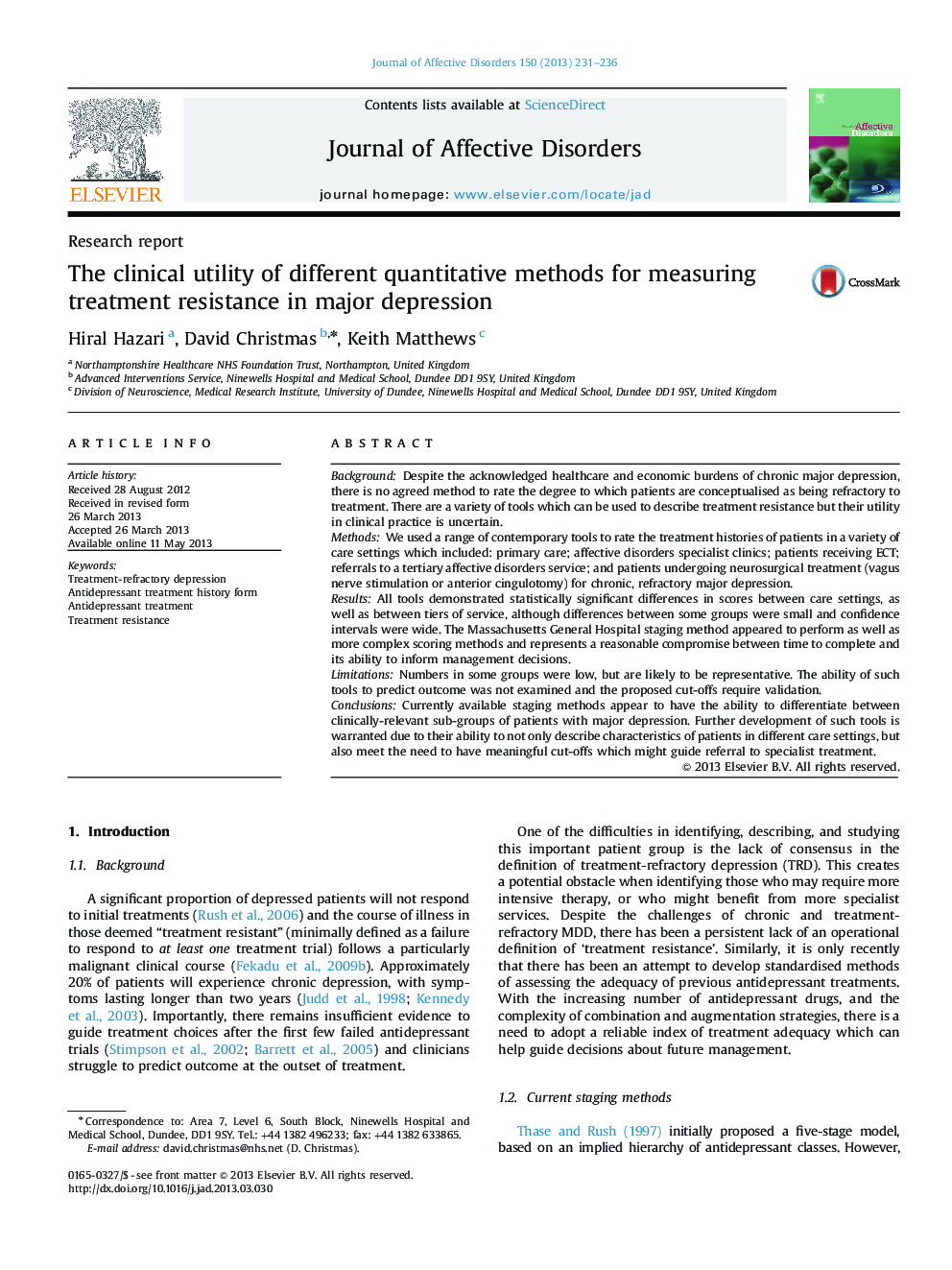| Article ID | Journal | Published Year | Pages | File Type |
|---|---|---|---|---|
| 6234199 | Journal of Affective Disorders | 2013 | 6 Pages |
BackgroundDespite the acknowledged healthcare and economic burdens of chronic major depression, there is no agreed method to rate the degree to which patients are conceptualised as being refractory to treatment. There are a variety of tools which can be used to describe treatment resistance but their utility in clinical practice is uncertain.MethodsWe used a range of contemporary tools to rate the treatment histories of patients in a variety of care settings which included: primary care; affective disorders specialist clinics; patients receiving ECT; referrals to a tertiary affective disorders service; and patients undergoing neurosurgical treatment (vagus nerve stimulation or anterior cingulotomy) for chronic, refractory major depression.ResultsAll tools demonstrated statistically significant differences in scores between care settings, as well as between tiers of service, although differences between some groups were small and confidence intervals were wide. The Massachusetts General Hospital staging method appeared to perform as well as more complex scoring methods and represents a reasonable compromise between time to complete and its ability to inform management decisions.LimitationsNumbers in some groups were low, but are likely to be representative. The ability of such tools to predict outcome was not examined and the proposed cut-offs require validation.ConclusionsCurrently available staging methods appear to have the ability to differentiate between clinically-relevant sub-groups of patients with major depression. Further development of such tools is warranted due to their ability to not only describe characteristics of patients in different care settings, but also meet the need to have meaningful cut-offs which might guide referral to specialist treatment.
